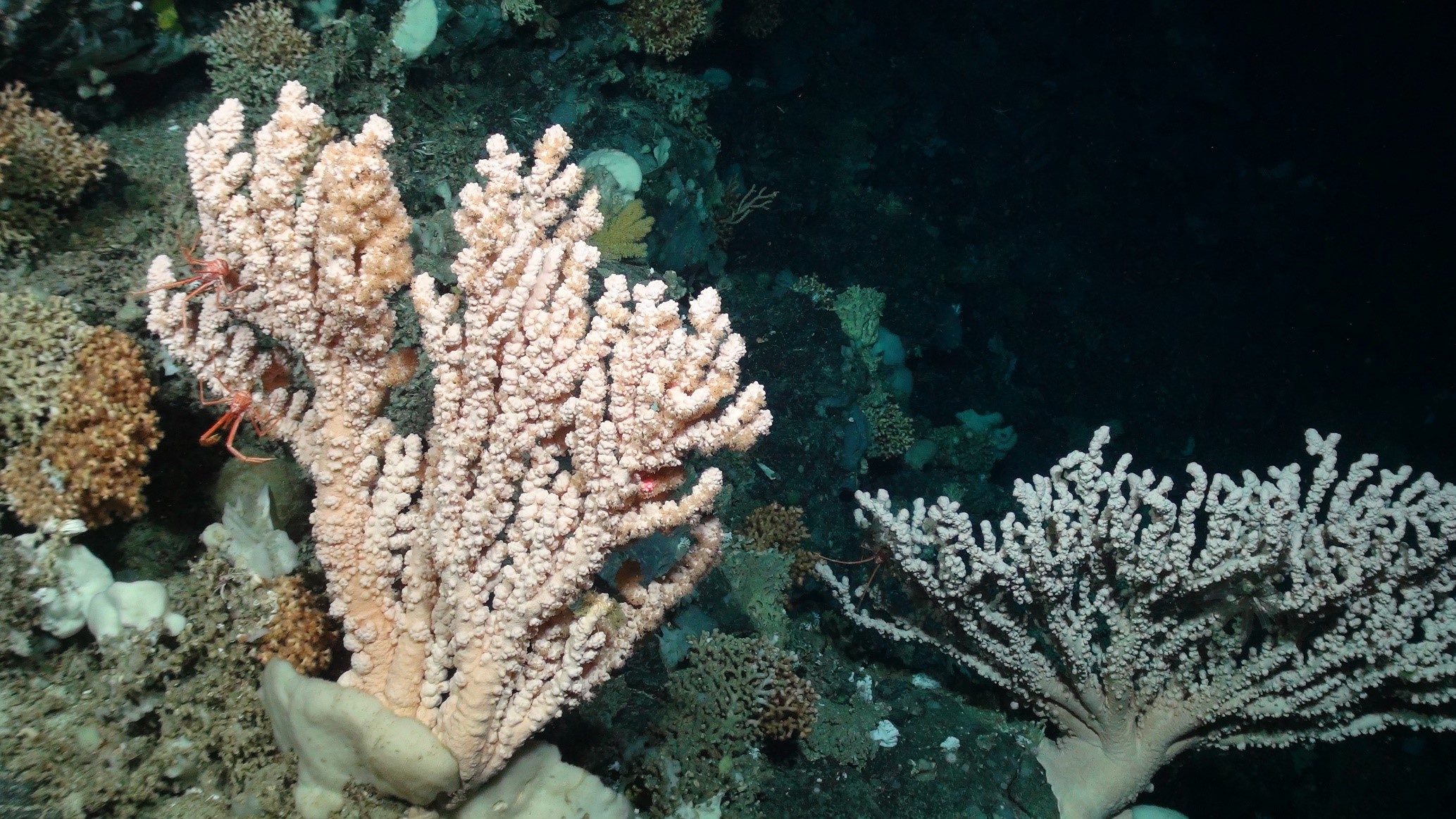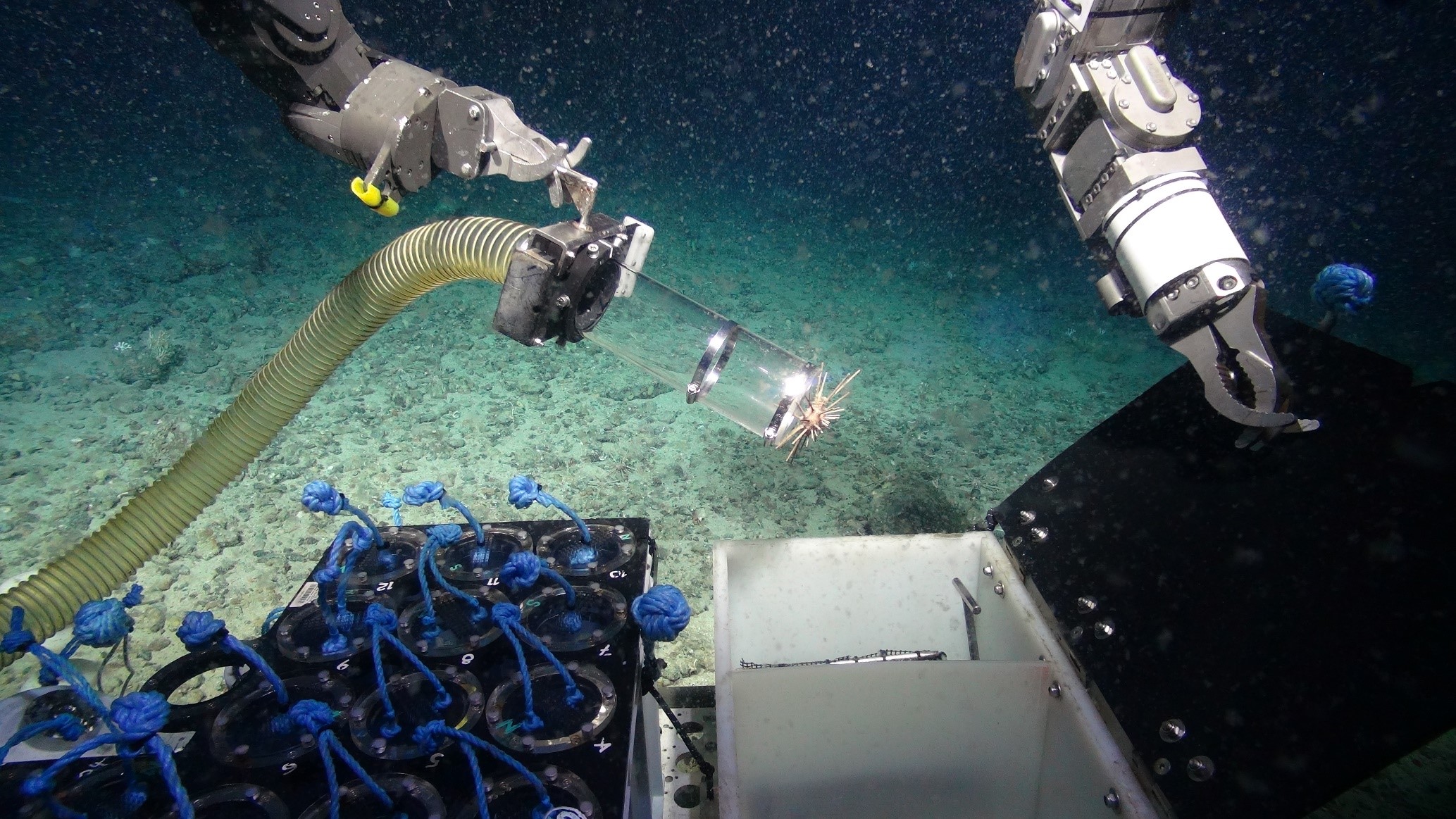Deep-Sea Ecosystems
Technological advances and increasing demand for resources are ushering in a new era of human exploitation of the deep-sea that will impact life in the deep oceans in various ways. It is therefore imperative to increase our understanding of deep-sea ecosystems in line with these anthropogenic and climatic impacts. While there are a number of international fora that allow deep-sea scientists to meet and discuss research, there is no such national body. The Deep-Sea Ecosystems SIG provides a platform for deep-sea researchers in the UK to meet every year and discuss national issues in relation to deep-sea science. Ultimately the SIG gives a voice to the UK deep-sea biological sciences community. 
How can you get involved in the SIG?
You can automatically subscribe to the Deep-Sea Ecosystems email list by sending an email:
To: listserv@jiscmail.ac.uk
Subject: BLANK
Message: SUBSCRIBE DEEPSEAUK Firstname Lastname
Then follow the confirmation instructions. This list is used by members for topical discussion and to update on SIG activities, with minimal spamming.
The SIG chair is Dr James Bell (Cefas).
Deep-Sea Ecosystems SIG Meeting 2025
Dates: 19-20 November 2025
Location: JNCC (Quay House, Peterborough); Remote attendance will be possible also, but we’d love to see you in person if at all possible.
Time: Timings TBC but likely something like 11-5 on the Wednesday and 9-2 on the Thursday.
Whether or not you registered previously, please register for this meeting using the link below. Apologies for the inconvenience, and I hope that this date & location will be suitable.
As a reminder, there is still the option for one ECR to receive a small bursary to cover travel and subsistence, provided by the Challenger Society.
The registration link for the 2025 DSE-SIG meeting is now live (https://forms.office.com/e/aRMHEZNSpC). Please register as soon as possible. Applications for the ECR bursary will close one month from May 21.
Meeting convenors: Dr James Bell (Cefas), chair of the DSE-SIG, and Laura Grady (JNCC)
Contacts: james.bell@cefas.gov.uk & laura.robson@jncc.gov.uk
Latest News
Royal Society Publishing Photography Competition 2025
Please see a message from the Royal Society below:
We are delighted to announce that the 2025 Competition is now open for entries until 15 August for a chance to win £1000! The competition celebrates the power of photography in conveying the wonder of science happening all around us and photographs can be submitted in the categories of: Astronomy, Behaviour, Earth Science and Climatology, Ecology and Environmental Science, and Microimaging.
The competition is free to enter and open to anyone studying or working in science at graduate level or above. Category winners will receive a one-year membership to the Royal Photographic Society and the overall winner will receive a grand prize of £1,000. Find out more: https://bit.ly/RSPphotocomp
October 2025 MEDIN Workshop: Marine Data Management, Governance and the MEDIN toolset
The Marine Environmental Data and Information Network (MEDIN) are pleased to announce that registration is now open for the next occurrence of our popular free online training workshop: ‘Marine Data Management, Governance and the MEDIN toolset’ on the 13th – 17th October 2025 on OceanTeacher Global Academy.
Marine Data Management, Governance and the MEDIN toolset
The Marine Environmental Data and Information Network (MEDIN) and OceanWise are delighted to invite you to attend our popular free online training workshop: ‘Marine Data Management, Governance and the MEDIN toolset’ on the 19th – 23rd of May 2025.
